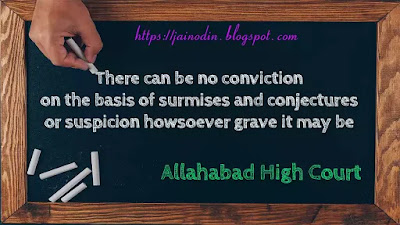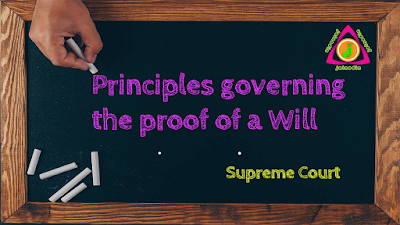In fact learned Counsel for parties also have mostly relied upon the evidence of the prosecutrix only either to demonstrate that the offences have not been committed or committed. Law on the perspective to be adopted in such case can be found in following two judgments of the Hon. Apex Court. In Narender Kumar Vs. State (NCT of Delhi), AIR 2012 SC 2281 : (2012) CriLJ 3033 : (2012) 3 JCC 1888 : (2012) 5 SCALE 657 : (2012) 7 SCC 171 : (2012) AIRSCW 3391 : (2012) 4 Supreme 59 , Hon. Apex Court points out the settled legal proposition that once the statement of prosecutrix inspires confidence and is accepted by the court as such, conviction can be based only on the solitary evidence of the prosecutrix and no corroboration would be required unless there are compelling reasons which necessitate the court for corroboration of her statement. Corroboration of testimony of the prosecutrix as a condition for judicial reliance is not a requirement of law but a guidance of prudence under the given facts and circumstances. However, where evidence of the prosecutrix is found suffering from serious infirmities and inconsistencies with other material, prosecutrix making deliberate improvements on material point with a view to rule out consent on her part and there being no injury on her person even though her version may be otherwise, no reliance can be placed upon her evidence. Even in cases where there is some material to show that the victim was habituated to sexual intercourse, no inference of the victim being a woman of "easy virtues" or a women of "loose moral character" can be drawn. Such a woman has a right to protect her dignity and cannot be subjected to rape only for that reason. She has a right to refuse to submit herself to sexual intercourse to anyone and everyone because she is not a vulnerable object or prey for being sexually assaulted by anyone and everyone. Merely because a woman is of easy virtue, her evidence cannot be discarded on that ground alone rather it is to be cautiously appreciated. In view of the provisions of Sections 53 and 54 of the Evidence Act, 1872, unless the character of the prosecutrix itself is in issue, her character is not a relevant factor to be taken into consideration. Hon. Apex Court states that even in a case of rape, the onus is always on the prosecution to prove, affirmatively each ingredient of the offence it seeks to establish and such onus never shifts. It is no part of the duty of the defence to explain as to how and why in a rape case the victim and other witness have falsely implicated the accused. Prosecution case has to stand on its own legs and cannot take support from the weakness of the case of defence. However great the suspicion against the accused and however strong the moral belief and conviction of the court, unless the offence of the accused is established beyond reasonable doubt on the basis of legal evidence and material on the record, he cannot be convicted for an offence. There is an initial presumption of innocence of the accused and the prosecution has to bring home the offence against the accused by reliable evidence. The accused is entitled to the benefit of every reasonable doubt.
Prosecution has to prove its case beyond reasonable doubt and cannot take support from the weakness of the case of defence. There must be proper legal evidence and material on record to record the conviction of the accused. Conviction can be based on sole testimony of the prosecutrix provided it lends assurance of her testimony. However, in case the court has reason not to accept the version of prosecutrix on its face value, it may look for corroboration. In case the evidence is read in its totality and the story projected by the prosecutrix is found to be improbable, the prosecutrix case becomes liable to be rejected. The court must act with sensitivity and appreciate the evidence in totality of the background of the entire case and not in the isolation. Hon. Apex Court in matter before it observes that the facts and circumstances therein made it crystal clear that if the evidence of the prosecutrix was read and considered in totality of the circumstances along with the other evidence on record, in which the offence was alleged to have been committed, her deposition did not inspire confidence. The prosecution had not disclosed the true genesis of the crime. It therefore, found the appellant entitled to the benefit of doubt.[Para No.15]
Prosecution has to prove its case beyond reasonable doubt and cannot take support from the weakness of the case of defence. There must be proper legal evidence and material on record to record the conviction of the accused. Conviction can be based on sole testimony of the prosecutrix provided it lends assurance of her testimony. However, in case the court has reason not to accept the version of prosecutrix on its face value, it may look for corroboration. In case the evidence is read in its totality and the story projected by the prosecutrix is found to be improbable, the prosecutrix case becomes liable to be rejected. The court must act with sensitivity and appreciate the evidence in totality of the background of the entire case and not in the isolation. Hon. Apex Court in matter before it observes that the facts and circumstances therein made it crystal clear that if the evidence of the prosecutrix was read and considered in totality of the circumstances along with the other evidence on record, in which the offence was alleged to have been committed, her deposition did not inspire confidence. The prosecution had not disclosed the true genesis of the crime. It therefore, found the appellant entitled to the benefit of doubt.[Para No.15]





